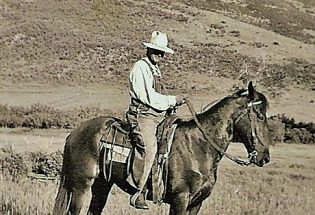First human West Nile virus cases in Larimer County this year
By Amber McIver-Traywick
The Surveyor
This week the Larimer County Department of Health and Environment (LCDHE) confirmed the first cases of West Nile virus (WNV) in Larimer County residents in 2019. The cases reside in Wellington and Fort Collins, and neither were hospitalized.

WNV risk is increasing across the county, particularly in the southeast part of Fort Collins. County officials say it is a good time to remind people to protect themselves from WNV by taking steps to avoid being bitten by mosquitoes. That can easily be done by using an effective repellent or staying indoors when mosquitoes are biting.
Katie O’Donnell with the LCDHE said, “The main thing is if you aren’t getting bit by mosquitos you aren’t at risk of getting (WNV). If a neighbor has it you won’t contract it from them; if you have bug spray on or are not going outside when they are out and biting you wont get it.”
Trapping mosquitoes to monitor for WNV risk began in June in Larimer County. WNV is a viral infection which is spread to people by bites from infected Culex mosquitoes. Symptoms can range from none at all to severe illness. About 75% of people who are infected do not show symptoms; about 25% will develop West Nile fever. Less than 1% develop the more severe neuro-invasive form, which can lead to hospitalization, critical illness, chronic disability, or even death. Symptoms can include headaches, fever, body aches, vomiting, diarrhea, fatigue and skin rash. Severe symptoms include high fever, severe headache, stiff neck, disorientation, confusion, stupor, coma, tremors, seizures and paralysis.
O’Donnell made the point of stressing symptoms may not emerge for weeks or longer after the virus is contracted, making the connection between the mosquito bites and the sickness less obvious. The highest numbers of human cases are reported from September through October due to this lag. If you do find yourself with any of the symptoms of WNV she said, “We always encourage residents to go in and get testing done and encourage healthcare providers to test; (WNV) is incredibly under reported.” She continued to explain the indicators in an infected person’s blood will still be present as many as seven years after the initial transmission of the disease. However, if someone tests positive but it appears to have been contracted years before, it is not reportable.
LCDHE works with local cities, a mosquito abatement company (Vector Disease Control International), and Colorado State University experts to monitor and assess the risk to Larimer County residents throughout the summer.
WNV can be prevented. In addition to community efforts, such as larviciding, reducing water where mosquitoes can breed, and spraying for adult mosquitoes, individuals can use the four Ds to help prevent WNV:
Defend – Use an EPA-registered mosquito repellent that has proven to be effective against WNV-carrying mosquitoes. DEET, Picaridin, Oil of Lemon Eucalyptus, and IR3535 are good choices.
Dusk to dawn – Avoid exposure during peak Culex mosquito feeding times, from dusk through dawn.
Dress – Wear long sleeves and pants to keep mosquitoes from biting.
Drain – Remove standing water in your yard or garden to minimize mosquito-breeding areas.
For more tips on what you can do to prevent WNV, visit Larimer.org/westnile.
- February, 24 2016

Town revised snow and ice removal policy
By Rudy Hemmann The Surveyor An updated policy for snow and ice removal from town...
- January, 28 2016

10 apply for 5 trustee seats
Voters to also decide on lodging tax and mill levy continuance By John Gardner The...
- December, 13 2019

Taming fires and horses, Berthoud fir...
By May Soricelli - Public Information Officer, Berthoud Fire Protection District The Surveyor One of...
- February, 16 2023

Obituary – Eldred Gary Maggi
Eldred Gary Maggi Sept. 2, 1940 — Feb. 5, 2023 Eldred Gary Maggi, 82 of...
- April, 17 2015

Planning commission approves variance...
By Rudy Hemmann The Surveyor The planning commission held a brief meeting Thursday, April 9,...
- November, 09 2018

A WWI letter home from Wyatt Smith
Photo courtesy of the Welty Collection, Berthoud Historical Society. - Following military service in World...

POLICEBLOTTER
Community News
Northern Water sets C-BT quota at 70% for 2024
Community News

Emotions run high during Revere Property hearing
Community News
Snowpack at 119% above normal
Community News

Karspeck to serve third term as Berthoud mayor
Community News

OPINION – No bitchin’ allowed
Community News
Roy Tripi to become principal of BHS on July 1
Community News
COMMUNITY CALENDAR:
Community Calendar – add an event
Homestead Fine Art Gallery First Fridays OPEN HOUSE
03 May 4:00 PM - 7:00 PM
Homestead Fine Art Gallery First Fridays OPEN HOUSE
07 Jun 4:00 PM - 7:00 PM
Homestead Fine Art Gallery First Fridays OPEN HOUSE
05 Jul 4:00 PM - 7:00 PM
Homestead Fine Art Gallery First Fridays OPEN HOUSE
02 Aug 4:00 PM - 7:00 PM
Homestead Fine Art Gallery First Fridays OPEN HOUSE
06 Sep 4:00 PM - 7:00 PM
Homestead Fine Art Gallery First Fridays OPEN HOUSE
04 Oct 4:00 PM - 7:00 PM

